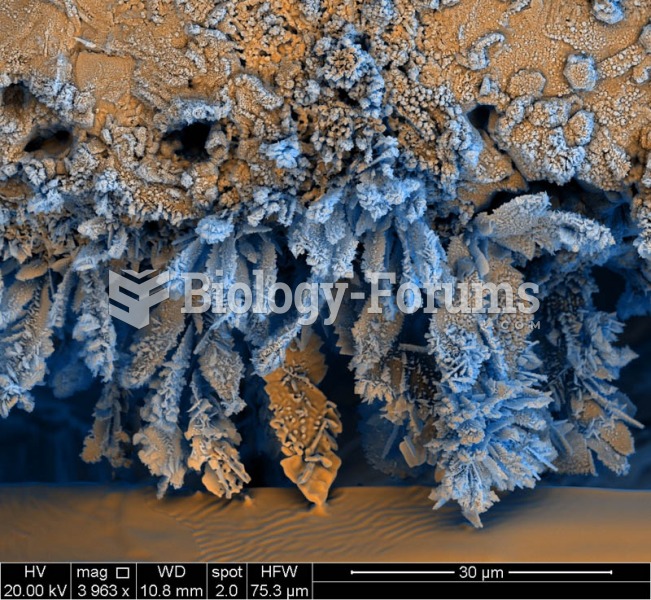|
|
|
Did you know?
The longest a person has survived after a heart transplant is 24 years.
Did you know?
Human kidneys will clean about 1 million gallons of blood in an average lifetime.
Did you know?
On average, someone in the United States has a stroke about every 40 seconds. This is about 795,000 people per year.
Did you know?
Eat fiber! A diet high in fiber can help lower cholesterol levels by as much as 10%.
Did you know?
The lipid bilayer is made of phospholipids. They are arranged in a double layer because one of their ends is attracted to water while the other is repelled by water.







